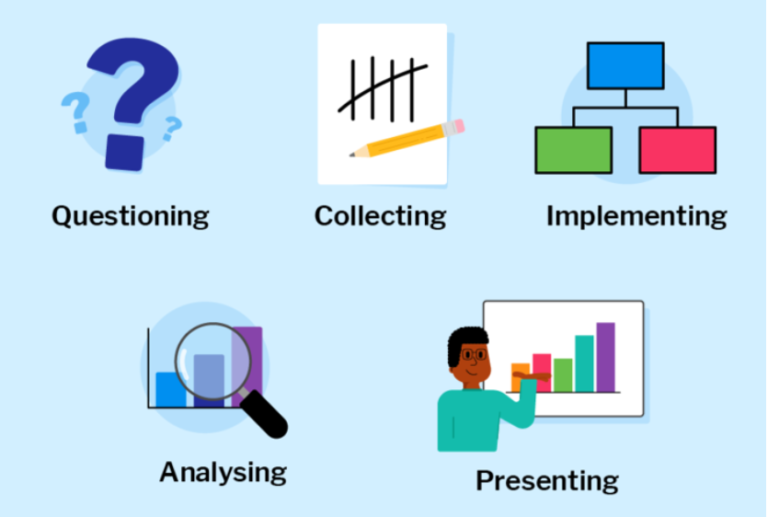Data has emerged as the fundamental currency guiding everything from commercial plans to personal communications in an era increasingly dominated by digital interactions and information exchange. Learning the importance of data handling is now essential as there are different uses of data handling in daily life, whether you’re a student, an experienced professional, or just someone who lives a daily digital existence. This article focuses on the introduction of data handling and also explores the critical significance of grasping data processing and its wide-ranging effects on both people and organizations.
What Is Data Handling?
Definition of data handling– Data handling can be defined as the meticulous process of managing and manipulating data with the aim of extracting meaningful insights and facilitating well-informed decisions. It encompasses a spectrum of operations, including data collection, organization, analysis, and presentation. Proficiency in data handling is a pivotal skill across various domains, encompassing business, scientific research, and academia. In the sections that follow, we will unravel the reasons why this skill is indispensable in today’s data-driven landscape.
What is Data Handling in Maths?
Firstly we will define Data in math, a set of values, observations, or measurements that are collected or provided for the purpose of mathematical analysis, modeling, or study. Therefore Data handling in math refers to the techniques and methods used to manage and manipulate these data for mathematical analysis. This can include tasks such as Data collection, Data organization, Data Analysis, Data presentation and its representation.
Types of Data
Data can be broadly classified into two main types:
Quantitative data
Quantitative data represents numerical values that can be measured and counted. Examples of quantitative data include age, height, and income. These data types are typically analyzed using mathematical and statistical techniques.
Qualitative data
Qualitative data consists of non-numerical information, often categorized into distinct groups or qualities. Examples of qualitative data include colors, emotions, and customer satisfaction ratings. Qualitative data is often analyzed through categorization and thematic analysis.
Types of Data Handling
Data handling techniques encompass a wide range of methods to effectively process and present data. Here are some common types of data handling:
Bar Graph
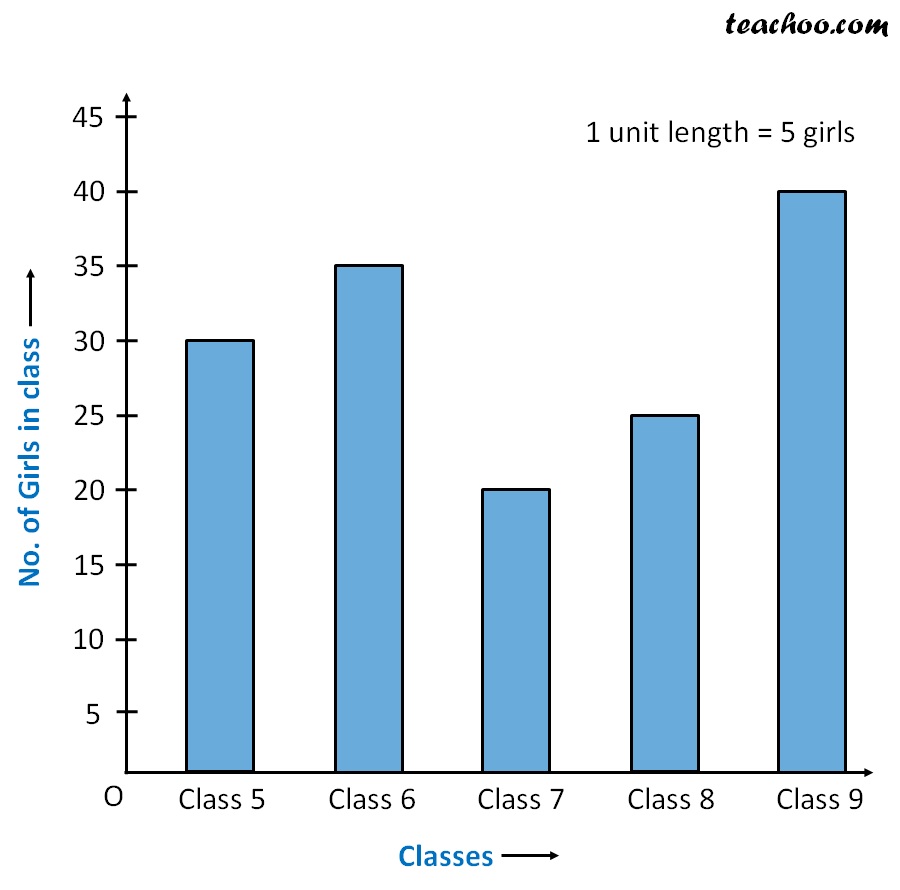
Bar graphs are used to display categorical data using rectangular bars. For instance, a bar graph can illustrate the sales figures of different products over a month.
Pictograph
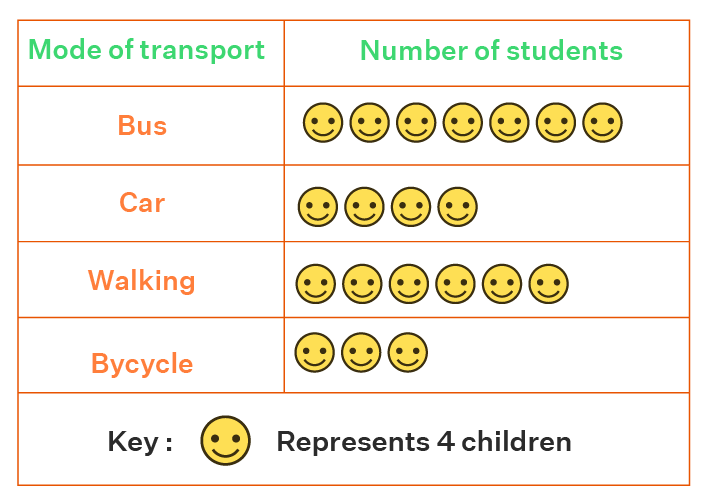
Pictographs use symbols or pictures to represent data. For example, a pictograph can depict the number of books sold with book icons.
Line Graph
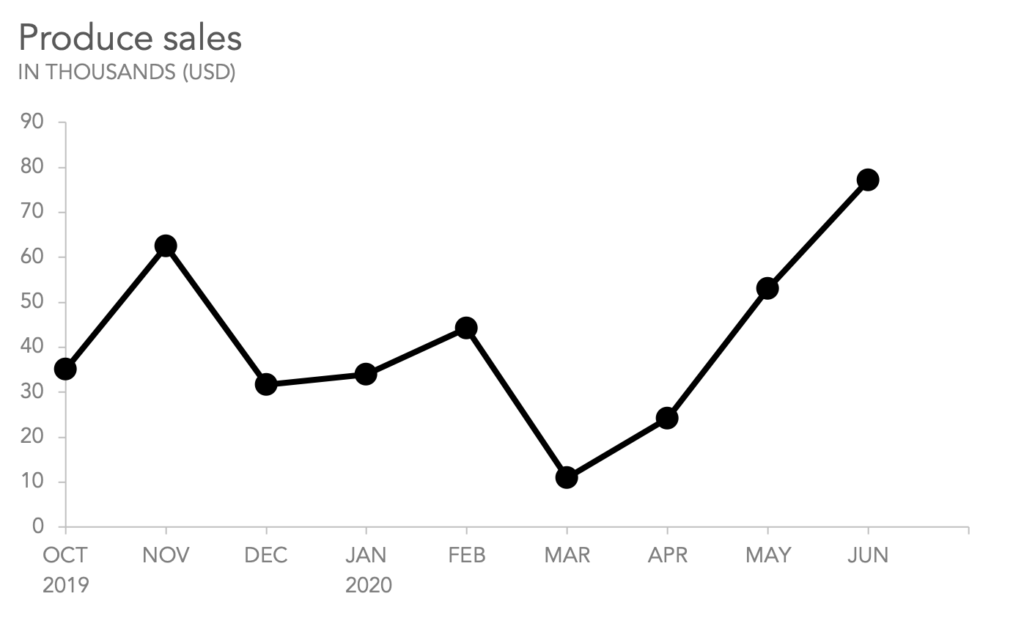
Line graphs are ideal for showing trends and changes over time. They are often used in financial reports to visualize stock market fluctuations.
Stem and Leaf Plots
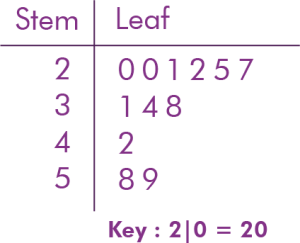
Stem and leaf plots organize numerical data by separating the leading digits (stems) from the trailing digits (leaves). This helps in displaying the distribution of data points.
Histogram

Histograms provide a graphical representation of the frequency distribution of continuous data, such as age groups in a population.
Dot Plots
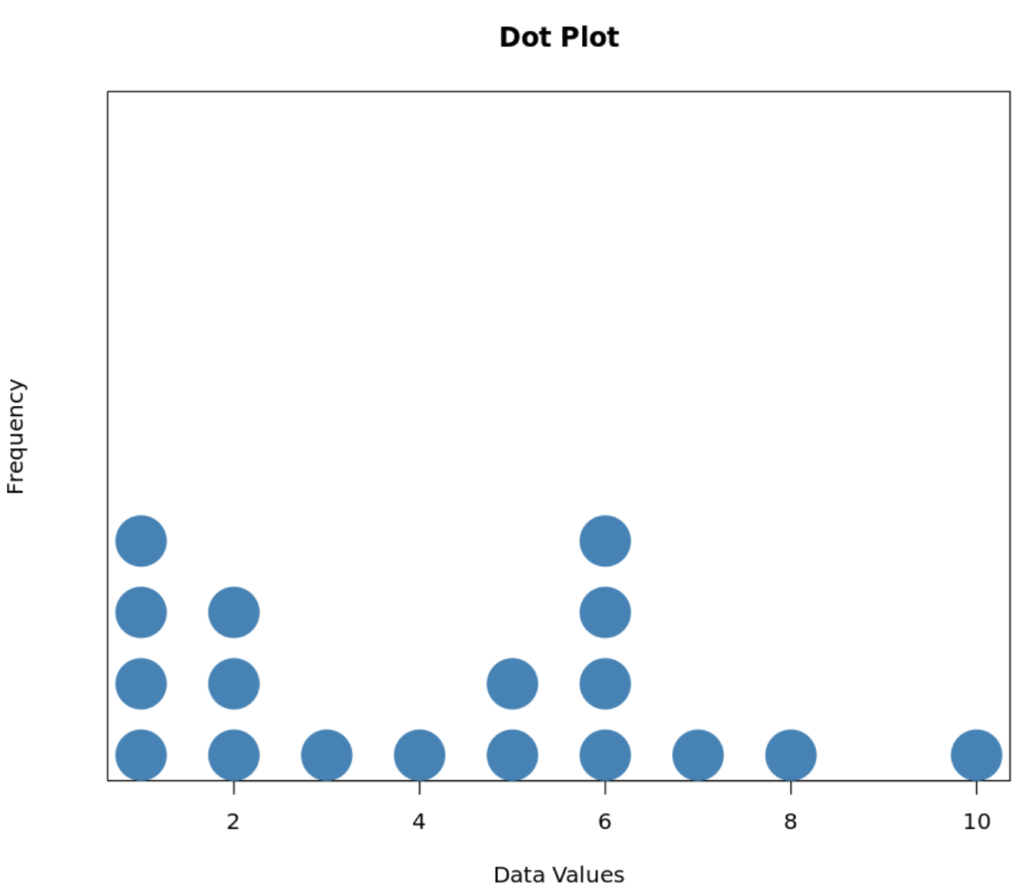
Dot plots use dots to represent data points. They are useful for visualizing individual data values and identifying patterns.
Cumulative Tables and Graphs
Cumulative tables and graphs show the accumulation of data over time or categories. They are commonly used in finance to track cumulative earnings.
Frequency Distribution
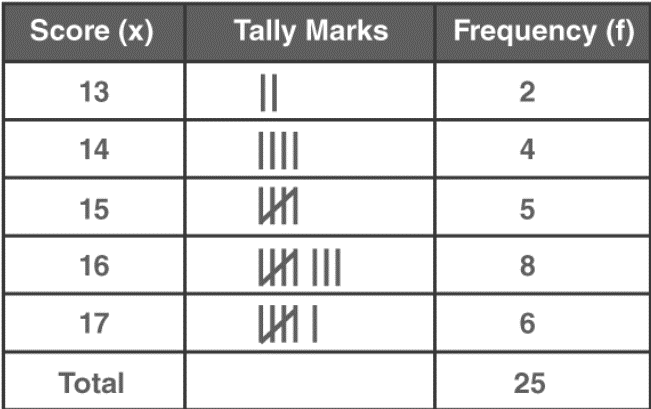
Frequency distribution tables summarize data by displaying the number of occurrences of each value in a dataset. This is useful for understanding the distribution of data.
What is Data Collection?
Data collection is the systematic process of gathering raw information from various sources, such as surveys, observations, or sensors. It is a fundamental step in data handling, as the quality and accuracy of collected data greatly impact the subsequent analysis and decision-making processes.
The Importance of Ensuring Accurate and Appropriate Data Collection
Accurate and appropriate data collection is vital because:
- Enhances Decision: Making: Reliable data forms the basis for informed decisions.
- Quality Insights: Properly collected data leads to accurate insights.
- Legitimacy: Proper data collection ensures the legitimacy of research findings.
- Reputation: Maintains the credibility and reputation of organizations.
- Uses of data handling in daily life: Data handling also plays a significant role in daily life, often without us even realizing it. It includes personal finance, health and fitness, and education.
The Consequences from Improperly Collected Data
Improper data collection can lead to:
- Misleading Decisions: Inaccurate data can lead to misguided decisions.
- Inefficient Problem Solving: Problems may persist due to incomplete or unreliable data.
- Erroneous Insights: Proper data collection is the foundation of meaningful insights. Improper data collection can result in flawed conclusions that, in turn, lead to erroneous insights.
- Resource Wastage: Resources may be misallocated based on incorrect information.
Conclusion
For generating relevant insights and making informed decisions, effective data management, which encompasses a variety of data kinds and processing methodologies, is crucial. The foundation of this procedure is proper data collection, which guarantees the accuracy and applicability of the data utilized in analysis.
Download PPT of Data Handling and Its Importance

Video On Data Handling and Its Importance
FAQs on Data Handling
Q1: What is the use of data handling in real life?
Data handling helps in making informed decisions, solving problems, and understanding trends in various real-life situations, from business operations to healthcare.
Q2: What can be learned from data handling?
As you can see from the data handling definition, it helps in extracting insights, identifying trends, and making data-driven decisions, which can lead to improved processes, increased efficiency, and better outcomes.
Q3: What are the basics of data handling?
The basics data handling activity involve collecting, organizing, analyzing, and presenting data effectively to derive valuable insights and support decision-making.
Q4: What skills are developed by data handling?
Data handling curates skills such as data analysis, critical thinking, problem-solving, and the ability to communicate findings effectively.
Q5: Why is data the most important?
Data is crucial because it provides valuable information for informed decision-making, which is essential for personal, business, and societal progress.
Q6: How important is data preparation?
Data preparation is vital as it ensures that data is clean, relevant, and well-structured, which in turn leads to more accurate and meaningful analysis and decision-making.

